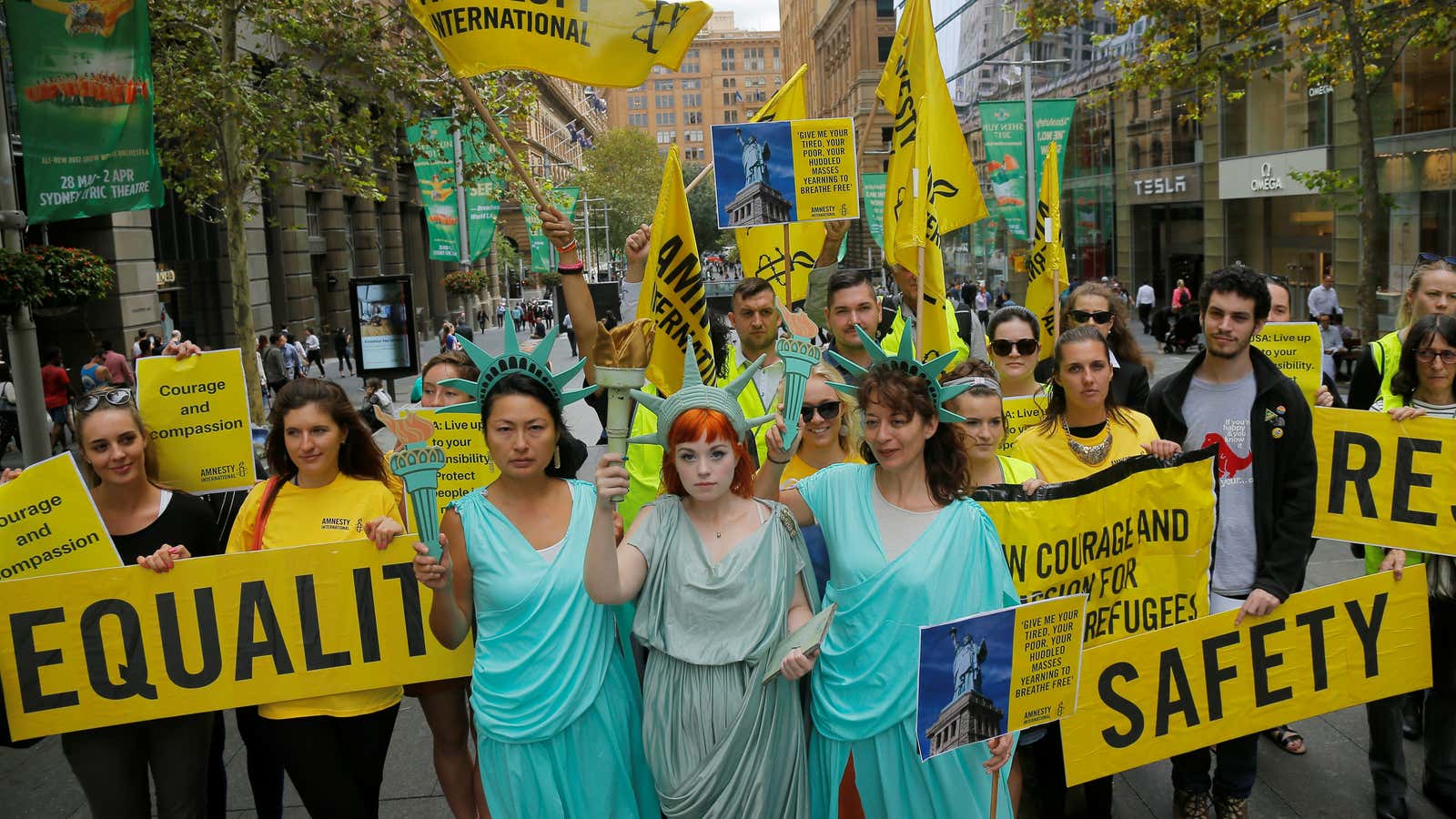By now you are probably familiar with the gender pay gap. But have you heard about the gender trust gap?
According to a global survey (pdf) of more than 33,000 people in 27 countries, women around the world trust institutions less than men do. The findings, from the public-relations firm Edelman, hold across every category—from businesses to government to the media and even NGOs. Women in Germany, the US, Japan, South Africa, and United Arab Emirates had the biggest gaps in institutional trust compared to men in their respective countries.
There’s good reason for women to be wary. After all, women in both developed and developing countries face a range of systemic injustices, from wage gaps to discriminatory economic policies, demeaning media messages, unfair school admissions policies, and a “pink tax” that means that women regularly pay more for products and services, all while facing higher interest rates.
Meanwhile, the MeToo movement and its aftermath have only heightened awareness of institutional failures to address the sexual harassment and discrimination that many women face in their working lives, with fresh examples seeming to emerge each week. The past few weeks alone have seen fresh allegations against Microsoft and Google, as well as a damning exposé alleging a dark history of harassment and discrimination at Sterling Jewelers. No wonder women aren’t exactly convinced that institutions have their best interests at heart.
Despite all this, women are still somewhat trustful of their employers, according to the survey—at least when it comes to their employers’ reliability as a source of information. Some 56% of women around the world said they agreed with the statement, “I look to my employer to be a trustworthy source of information about social issues and other topics on which there is not general agreement,” compared to 61% of men.
“This is a strong foundation upon which business can demonstrate positive action and build trust more broadly,” writes Lisa Kimmel, global chair of Edelman’s Global Women’s Equality Network, who also serves as chair and CEO of Edelman’s Canada division and chair of its Latin America division.
But employers still have a lot of work to do in demonstrating to women that they have equal opportunities at their jobs. Men’s faith that their employers offer wage and career growth, job training, and the chance to do fulfilling work registered 64 on a 100-point scale, compared to a score of 59 for women—a five-point gap. Men were also more likely to say that they had a voice in decisions at their company and that they were involved in the planning process, with another gap of five points, and more likely to say that they felt their job had a meaningful impact on society, with a gap of six points.
What can employers do to convince women they’re worthy of trust? Demonstrating leadership on equal pay and discrimination is a good place to start. Some 68% of women said they thought CEOs could make real change in the wage gap, compared to 62% of men. And 66% of women agreed that CEOs could create positive change when it comes to discrimination and prejudice, compared to 61% of men. Kimmel suggests that management needs to actively seek feedback from workers, too, writing: “Ask your teams: is our own house in order? Are we doing the hard work to get the basics—policies, processes and communication—right?”
Edelman conducted the field work for its study between mid-October and mid-November of 2018, coinciding with the first anniversary of the explosion of the #MeToo movement; it was the first time in the 19-year history of the Edelman Trust Barometer that the firm explored the connection between trust and gender.
It’s worth noting that the women participating in Edelman’s survey were speaking from a position of relative privilege. All survey respondents were college-educated adults between the ages of 25 and 64 who fell into the top 25% of household income for their age group and country, and who said that they were engaged with media and public policy. If even women with social and cultural capital aren’t convinced that they have an equal shot at advancing their careers and doing meaningful work, just imagine how women in other socioeconomic brackets must feel.
This story is part of How We’ll Win in 2019, a year-long exploration of workplace gender equality. Read more stories here.
